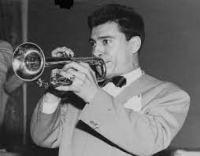Latest Sheet Music
Hans Zimmer

Hans Florian Zimmer (born September 12, 1957) is a German film score composer and music producer. He has composed music for over 100 films, including Hollywood blockbusters such as the Pirates of the Caribbean series, Gladiator, The Lion King, The Da Vinci Code and The Dark Knight.
Zimmer spent the early part of his career in the United Kingdom before moving to the United States. He is the head of the film music division at DreamWorks studios, and works with other composers through the company which he founded, Remote Control Productions. His work is notable for integrating electronic music sounds with traditional orchestral arrangements.
Zimmer spent the early part of his career in the United Kingdom before moving to the United States. He is the head of the film music division at DreamWorks studios, and works with other composers through the company which he founded, Remote Control Productions. His work is notable for integrating electronic music sounds with traditional orchestral arrangements.
Lara Fabian

Lara Fabian (born Lara Crokaert, January 9, 1970) is a Belgian-Italian international singer who holds Canadian citizenship. Multilingual, she sings in French, Italian and English. She has also sung in Spanish, Portuguese, Russian once in Hebrew on Israel's 60th Independence Day celebrations, and in German in 1988 for a version of "Croire" (ger.: "glauben" eng.: "believe"). She has sold over 18 million records worldwide.
Johann Sebastian Bach

Johann Sebastian Bach (31 March 1685 – 28 July 1750) was a German composer and musician of the Baroque period. He is known for instrumental compositions such as the Art of Fugue, the Brandenburg Concertos, and the Goldberg Variations, and for vocal music such as the St Matthew Passion and the Mass in B minor. Since the 19th-century Bach Revival he has been generally regarded as one of the greatest composers of the Western art musical canon.
Armando Manzanero
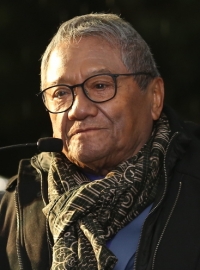
Armando Manzanero Canché (7 December 1935 – 28 December 2020) was a Mexican Mayan musician, singer, composer, actor and music producer, widely considered the premier Mexican romantic composer of the postwar era and one of the most successful composers of Latin America. He received a Grammy Lifetime Achievement Award in the United States in 2014. He was the president of the Mexican Society of Authors and Composers (Sociedad de Autores y Compositores de México).
Arvo Pärt

Arvo Pärt is an Estonian composer of classical and religious music. Since the late 1970s, Pärt has worked in a minimalist style that employs his self-invented compositional technique, tintinnabuli. Pärt's music is in part inspired by Gregorian chant.
Gaither VOcal Band

WOODY WRIGHT made his first Gaither stage appearance at the
Atlanta Homecoming video taping, recorded at the Georgia Dome in the mid nineties. Since that day, his titles and songs co-written with the Gaithers have been featured on dozens of the programs. His list of song cuts looks like a who’s who of popular Gospel artists including the Gaither Vocal Band, Mark Lowry, Jeff & Sheri Easter, Janet Paschal, the Booth Brothers, the Hoppers, Triumphant Quartet and the list goes literally on and on.
Atlanta Homecoming video taping, recorded at the Georgia Dome in the mid nineties. Since that day, his titles and songs co-written with the Gaithers have been featured on dozens of the programs. His list of song cuts looks like a who’s who of popular Gospel artists including the Gaither Vocal Band, Mark Lowry, Jeff & Sheri Easter, Janet Paschal, the Booth Brothers, the Hoppers, Triumphant Quartet and the list goes literally on and on.
Jimmy Rowles
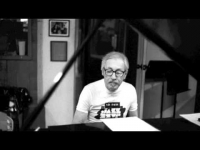
James George Hunter, known professionally as Jimmy Rowles, was an American jazz pianist, vocalist, and composer. As a bandleader and accompanist, he explored multiple styles including swing and cool jazz.
Johann Baptist Georg Neruda

Johann Baptist Georg Neruda (Czech: Jan Křtitel Jiří Neruda, c. 1708 – c. 1780) was a classical Czech composer.
Relative to other composers of the Classical music era Neruda is little known, and his dates of birth and death (taken from the Grove Dictionary) are only approximations. He was born in Bohemia, now part of the Czech Republic, to a well-respected musical family. After spending his earlier years gaining a good reputation as a violinist and conductor in Prague and Germany, Neruda became Konzertmeister of the Dresden court orchestra.His compositional output includes eighteen symphonies, fourteen instrumental concertos (including a trumpet and bassoon concerto), sonatas, sacred works and an opera Les Troqueurs.
Relative to other composers of the Classical music era Neruda is little known, and his dates of birth and death (taken from the Grove Dictionary) are only approximations. He was born in Bohemia, now part of the Czech Republic, to a well-respected musical family. After spending his earlier years gaining a good reputation as a violinist and conductor in Prague and Germany, Neruda became Konzertmeister of the Dresden court orchestra.His compositional output includes eighteen symphonies, fourteen instrumental concertos (including a trumpet and bassoon concerto), sonatas, sacred works and an opera Les Troqueurs.
Bach

Johann Sebastian Bach (31 March 1685 – 28 July 1750) was a German composer and organist whose sacred and secular works for choir, orchestra, and solo instruments drew together the strands of the Baroque period and brought it to its ultimate maturity. Although he introduced no new forms, he enriched the prevailing German style with a robust contrapuntal technique, an unrivalled control of harmonic and motivic organisation in composition for diverse musical forces, and the adaptation of rhythms and textures from abroad, particularly Italy and France.
Revered for their intellectual depth and technical and artistic beauty, Bach's works include the Brandenburg concertos; the Goldberg Variations; the English Suites, French Suites, Partitas, and Well-Tempered Clavier; the Mass in B Minor; the St. Matthew Passion; the St. John Passion; The Musical Offering; The Art of Fugue; the Sonatas and Partitas for violin solo; the Cello Suites; more than 200 surviving cantatas; and a similar number of organ works, including the celebrated Toccata and Fugue in D Minor.
While Bach's fame as an organist was great during his lifetime, he was not particularly well-known as a composer. His adherence to Baroque forms and contrapuntal style was considered "old-fashioned" by his contemporaries, especially late in his career when the musical fashion tended towards Rococo and later Classical styles. A revival of interest and performances of his music began early in the 19th century, and he is now widely considered to be one of the greatest composers in the Western tradition.
Revered for their intellectual depth and technical and artistic beauty, Bach's works include the Brandenburg concertos; the Goldberg Variations; the English Suites, French Suites, Partitas, and Well-Tempered Clavier; the Mass in B Minor; the St. Matthew Passion; the St. John Passion; The Musical Offering; The Art of Fugue; the Sonatas and Partitas for violin solo; the Cello Suites; more than 200 surviving cantatas; and a similar number of organ works, including the celebrated Toccata and Fugue in D Minor.
While Bach's fame as an organist was great during his lifetime, he was not particularly well-known as a composer. His adherence to Baroque forms and contrapuntal style was considered "old-fashioned" by his contemporaries, especially late in his career when the musical fashion tended towards Rococo and later Classical styles. A revival of interest and performances of his music began early in the 19th century, and he is now widely considered to be one of the greatest composers in the Western tradition.
Traditional

Rimsky-Korsakov
Nikolai Andreyevich Rimsky-Korsakov (Russian: Никола́й Андре́евич Ри́мский-Ко́рсаков, Nikolaj Andreevič Rimskij-Korsakov, Russian pronunciation: ) (18 March 1844, – 21 June 1908) was a Russian composer, and a member of the group of composers known as The Five. He was a master of orchestration. His best-known orchestral compositions—Capriccio Espagnol, the Russian Easter Festival Overture, and the symphonic suite Scheherazade—are considered staples of the classical music repertoire, along with suites and excerpts from some of his 15 operas. Scheherazade is an example of his frequent use of fairy tale and folk subjects.
Rimsky-Korsakov believed, as did fellow composer Mily Balakirev and critic Vladimir Stasov, in developing a nationalistic style of classical music. This style employed Russian folk song and lore along with exotic harmonic, melodic and rhythmic elements in a practice known as musical orientalism, and eschewed traditional Western compositional methods. However, Rimsky-Korsakov appreciated Western musical techniques after he became a professor of musical composition, harmony and orchestration at the Saint Petersburg Conservatory in 1871. He undertook a rigorous three-year program of self-education and became a master of Western methods, incorporating them alongside the influences of Mikhail Glinka and fellow members of The Five. His techniques of composition and orchestration were further enriched by his exposure to the works of Richard Wagner.
Rimsky-Korsakov believed, as did fellow composer Mily Balakirev and critic Vladimir Stasov, in developing a nationalistic style of classical music. This style employed Russian folk song and lore along with exotic harmonic, melodic and rhythmic elements in a practice known as musical orientalism, and eschewed traditional Western compositional methods. However, Rimsky-Korsakov appreciated Western musical techniques after he became a professor of musical composition, harmony and orchestration at the Saint Petersburg Conservatory in 1871. He undertook a rigorous three-year program of self-education and became a master of Western methods, incorporating them alongside the influences of Mikhail Glinka and fellow members of The Five. His techniques of composition and orchestration were further enriched by his exposure to the works of Richard Wagner.
Wicked: The Musical
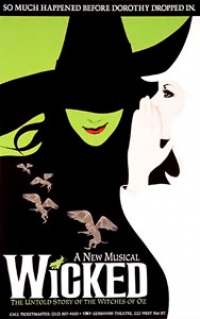
Wicked is a Tony Award-winning Broadway and West End musical, with songs and lyrics by Stephen Schwartz and book by Winnie Holzman. The story is based on the best-selling novel Wicked: The Life and Times of the Wicked Witch of the West by Gregory Maguire, a parallel novel of L. Frank Baum's classic story The Wonderful Wizard of Oz from the perspective of the witches of the Land of Oz.
Wicked tells the story of Elphaba, the future Wicked Witch of the West and her relationship with Galinda, later Glinda, the Good Witch of the North. Their friendship struggles through their opposing personalities and viewpoints, rivalry over the same love-interest, their reactions to the Wizard's corrupt government, and, ultimately, Elphaba's public fall from grace. The plot of the first act is set before Dorothy's arrival from Kansas, and includes several references to well-known scenes and dialogue in the 1939 film The Wizard of Oz as a backstory.
Wicked the musical premiered at San Francisco's Curran Theatre in May 2003. In October, 2003, the show moved to Broadway's Gershwin Theatre. It was produced by Universal Pictures and directed by Joe Mantello, with musical staging by Wayne Cilento. Its original stars were Idina Menzel as Elphaba, Kristin Chenoweth as Glinda, and Joel Grey as the Wizard. Although the production received mixed reviews and was panned by The New York Times, it has proved to be a favorite among patrons. The Broadway production's success spawned productions in Chicago, Los Angeles, London's West End, Tokyo, Melbourne, Sydney, Stuttgart, and San Francisco, as well as two North American tours that have visited over 30 cities in Canada and the United States.
Wicked has broken box office records around the world, holding weekly-gross-takings records in New York, Los Angeles, Chicago, St. Louis, and London, and the record for biggest opening in the West End (£100,000 in the first hour on sale). Both the West End production and the North American tour have been seen by over two million patrons. The show was nominated for ten 2004 Tony Awards, winning those for Best Actress (Menzel), Scenic Design and Costume Design. It also won six Drama Desk Awards.
Wicked tells the story of Elphaba, the future Wicked Witch of the West and her relationship with Galinda, later Glinda, the Good Witch of the North. Their friendship struggles through their opposing personalities and viewpoints, rivalry over the same love-interest, their reactions to the Wizard's corrupt government, and, ultimately, Elphaba's public fall from grace. The plot of the first act is set before Dorothy's arrival from Kansas, and includes several references to well-known scenes and dialogue in the 1939 film The Wizard of Oz as a backstory.
Wicked the musical premiered at San Francisco's Curran Theatre in May 2003. In October, 2003, the show moved to Broadway's Gershwin Theatre. It was produced by Universal Pictures and directed by Joe Mantello, with musical staging by Wayne Cilento. Its original stars were Idina Menzel as Elphaba, Kristin Chenoweth as Glinda, and Joel Grey as the Wizard. Although the production received mixed reviews and was panned by The New York Times, it has proved to be a favorite among patrons. The Broadway production's success spawned productions in Chicago, Los Angeles, London's West End, Tokyo, Melbourne, Sydney, Stuttgart, and San Francisco, as well as two North American tours that have visited over 30 cities in Canada and the United States.
Wicked has broken box office records around the world, holding weekly-gross-takings records in New York, Los Angeles, Chicago, St. Louis, and London, and the record for biggest opening in the West End (£100,000 in the first hour on sale). Both the West End production and the North American tour have been seen by over two million patrons. The show was nominated for ten 2004 Tony Awards, winning those for Best Actress (Menzel), Scenic Design and Costume Design. It also won six Drama Desk Awards.
Art Tatum

Arthur "Art" Tatum Jr. (October 13, 1909 – November 5, 1956) was an American jazz pianist and virtuoso. He was nearly blind.
Tatum is widely acknowledged as one of the greatest jazz pianists of all time. Critic Scott Yanow wrote, "Tatum's quick reflexes and boundless imagination kept his improvisations filled with fresh (and sometimes futuristic) ideas that put him way ahead of his contemporaries ... Art Tatum's recordings still have the ability to scare modern pianists."
Tatum is widely acknowledged as one of the greatest jazz pianists of all time. Critic Scott Yanow wrote, "Tatum's quick reflexes and boundless imagination kept his improvisations filled with fresh (and sometimes futuristic) ideas that put him way ahead of his contemporaries ... Art Tatum's recordings still have the ability to scare modern pianists."
Robbie Williams

Robert Peter Maximilian Williams (born 13 February 1974) is a Grammy Award-nominated, 15-time BRIT Award-winning English singer-songwriter. His career started as a member of the pop band Take That in 1990. He left Take That in 1995 to begin his solo career, after selling 25 million records with the group.
His album sales stand at over 55 million, with singles sales over 17 million.
Williams entered the The Guinness Book of World Records when in just one day he sold more than 1.6 million tickets for his 2006 world tour. He has been the recipient of many awards, including fifteen BRIT and six ECHO awards. In 2004, he was inducted into the UK Music Hall of Fame, after being voted as the Greatest artist of the 1990s.
Robbie Williams is the artist who is currently featured the most times in the UK Now That's What I Call Music! series. In the first 68 Now!s he has appeared 29 times (including 4 times with Take That). His first appearance was with Take That on Now 22 and his most recent appearance was on Now 66 with "She's Madonna".
His album sales stand at over 55 million, with singles sales over 17 million.
Williams entered the The Guinness Book of World Records when in just one day he sold more than 1.6 million tickets for his 2006 world tour. He has been the recipient of many awards, including fifteen BRIT and six ECHO awards. In 2004, he was inducted into the UK Music Hall of Fame, after being voted as the Greatest artist of the 1990s.
Robbie Williams is the artist who is currently featured the most times in the UK Now That's What I Call Music! series. In the first 68 Now!s he has appeared 29 times (including 4 times with Take That). His first appearance was with Take That on Now 22 and his most recent appearance was on Now 66 with "She's Madonna".
Maceo Parker
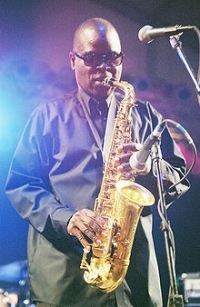
Maceo Parker (born February 14, 1943) is an American funk and soul jazz saxophonist, best known for his work with James Brown in the 1960s, as well as Parliament-Funkadelic in the 1970s. Parker was a prominent soloist on many of Brown's hit recordings, and a key part of his band, playing alto, tenor and baritone saxophones. He is now just as well known for his own shows, as he has toured continuously under his own name since the early 1990s and has built up a strong fan base.
Miles Davis

Miles Dewey Davis III (May 26, 1926 – September 28, 1991) was an American trumpeter, bandleader, and composer.
Widely considered one of the most influential musicians of the 20th century, Miles Davis was, with his musical groups, at the forefront of several major developments in jazz music, including bebop, cool jazz, hard bop, modal jazz, and jazz fusion. Many well-known musicians rose to prominence as members of Davis' ensembles, including saxophonists Gerry Mulligan, John Coltrane, Cannonball Adderley, George Coleman, Wayne Shorter, Dave Liebman, Branford Marsalis and Kenny Garrett; trombonist J. J. Johnson; pianists Horace Silver, Red Garland, Wynton Kelly, Bill Evans, Herbie Hancock, Joe Zawinul, Chick Corea, and Keith Jarrett; guitarists John McLaughlin, Pete Cosey, John Scofield and Mike Stern; bassists Paul Chambers, Ron Carter, Dave Holland, Marcus Miller and Darryl Jones ; and drummers Philly Joe Jones, Jimmy Cobb, Tony Williams, Billy Cobham, Jack DeJohnette, and Al Foster.
On October 7, 2008, his album Kind of Blue, released in 1959, received its fourth platinum certification from the RIAA, signifying sales of 4 million copies. Miles Davis was inducted into the Rock and Roll Hall of Fame in 2006. Davis was noted as "one of the key figures in the history of jazz".
On November 5, 2009, Rep. John Conyers of Michigan sponsored a measure in the US House of Representatives to recognize and commemorate the album Kind of Blue on its 50th anniversary. The measure also affirms jazz as a national treasure and "encourages the United States government to preserve and advance the art form of jazz music." It passed, unanimously, with a vote of 409–0 on December 15, 2009.
Widely considered one of the most influential musicians of the 20th century, Miles Davis was, with his musical groups, at the forefront of several major developments in jazz music, including bebop, cool jazz, hard bop, modal jazz, and jazz fusion. Many well-known musicians rose to prominence as members of Davis' ensembles, including saxophonists Gerry Mulligan, John Coltrane, Cannonball Adderley, George Coleman, Wayne Shorter, Dave Liebman, Branford Marsalis and Kenny Garrett; trombonist J. J. Johnson; pianists Horace Silver, Red Garland, Wynton Kelly, Bill Evans, Herbie Hancock, Joe Zawinul, Chick Corea, and Keith Jarrett; guitarists John McLaughlin, Pete Cosey, John Scofield and Mike Stern; bassists Paul Chambers, Ron Carter, Dave Holland, Marcus Miller and Darryl Jones ; and drummers Philly Joe Jones, Jimmy Cobb, Tony Williams, Billy Cobham, Jack DeJohnette, and Al Foster.
On October 7, 2008, his album Kind of Blue, released in 1959, received its fourth platinum certification from the RIAA, signifying sales of 4 million copies. Miles Davis was inducted into the Rock and Roll Hall of Fame in 2006. Davis was noted as "one of the key figures in the history of jazz".
On November 5, 2009, Rep. John Conyers of Michigan sponsored a measure in the US House of Representatives to recognize and commemorate the album Kind of Blue on its 50th anniversary. The measure also affirms jazz as a national treasure and "encourages the United States government to preserve and advance the art form of jazz music." It passed, unanimously, with a vote of 409–0 on December 15, 2009.
Tom Kitt
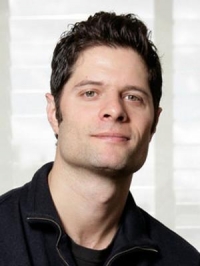
Thomas Robert "Tom" Kitt (born 1974) is an American composer, conductor, orchestrator and musician. For his score for the musical Next to Normal, he shared the 2010 Pulitzer Prize for Drama with Brian Yorkey. He also won the Tony Award and 2008 Outer Critics Circle Award, and was nominated for a Drama Desk Award for American Idiot and Everyday Rapture.
Guthrie Govan
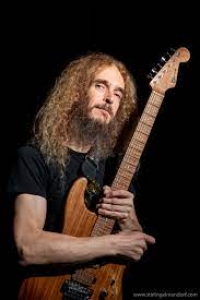
Guthrie Govan is an English guitarist and guitar teacher, known for his work with the bands The Aristocrats, Asia, GPS, The Young Punx and The Fellowship, as well as his solo project Erotic Cakes. More recently, he has collaborated with Steven Wilson and Hans Zimmer.
Dream Theater

Dream Theater is an American progressive metal band formed in 1985 under the name Majesty by John Petrucci, John Myung, and Mike Portnoy while they attended Berklee College of Music in Massachusetts, before they dropped out to support the band. Though a number of lineup changes followed, the three original members remain today along with James LaBrie and Jordan Rudess.
Dream Theater has become a successful progressive metal band. Although the band has had one successful hit ("Pull Me Under" in 1992, which received extensive MTV rotation), they have remained relatively out of the mainstream.
The band is well known for the technical proficiency of its instrumentalists, who have won many awards from music instruction magazines. Dream Theater's members have collaborated with many other notable musicians. Guitarist John Petrucci has been named as the third player on the G3 tour six times, more than any other invited guitarist, following in the footsteps of Eric Johnson and Robert Fripp. Drummer Mike Portnoy has won 23 awards from Modern Drummer Magazine and is also the second youngest person (at the age of 37) to be inducted into the Rock Drummer Hall of Fame.
The band's highest selling album is the gold selling Images and Words (1992), which reached #61 on the Billboard 200 charts. Both the 1994 release Awake and their 2002 release Six Degrees of Inner Turbulence also entered the charts at #32 and #46 respectively and received mostly positive reviews. Six Degrees of Inner Turbulence also led to Dream Theater becoming the initial band reviewed in the Music Section of Entertainment Weekly during its opening week of release, despite the magazine generally preferring more mainstream music. In 2007, Systematic Chaos entered US Billboard 200 at #19. Dream Theater has sold over two million albums in the U.S., and over 8 million records worldwide. The band's tenth studio album, Black Clouds & Silver Linings, was released on June 23, 2009. It entered the US Billboard 200 at #6 and Eurochart Hot 100 at #1, marking their highest entry on either chart. Currently the musician and writer Jose Aranda is writing a doctoral thesis book about Dream Theater and the meaning of music.
Dream Theater has become a successful progressive metal band. Although the band has had one successful hit ("Pull Me Under" in 1992, which received extensive MTV rotation), they have remained relatively out of the mainstream.
The band is well known for the technical proficiency of its instrumentalists, who have won many awards from music instruction magazines. Dream Theater's members have collaborated with many other notable musicians. Guitarist John Petrucci has been named as the third player on the G3 tour six times, more than any other invited guitarist, following in the footsteps of Eric Johnson and Robert Fripp. Drummer Mike Portnoy has won 23 awards from Modern Drummer Magazine and is also the second youngest person (at the age of 37) to be inducted into the Rock Drummer Hall of Fame.
The band's highest selling album is the gold selling Images and Words (1992), which reached #61 on the Billboard 200 charts. Both the 1994 release Awake and their 2002 release Six Degrees of Inner Turbulence also entered the charts at #32 and #46 respectively and received mostly positive reviews. Six Degrees of Inner Turbulence also led to Dream Theater becoming the initial band reviewed in the Music Section of Entertainment Weekly during its opening week of release, despite the magazine generally preferring more mainstream music. In 2007, Systematic Chaos entered US Billboard 200 at #19. Dream Theater has sold over two million albums in the U.S., and over 8 million records worldwide. The band's tenth studio album, Black Clouds & Silver Linings, was released on June 23, 2009. It entered the US Billboard 200 at #6 and Eurochart Hot 100 at #1, marking their highest entry on either chart. Currently the musician and writer Jose Aranda is writing a doctoral thesis book about Dream Theater and the meaning of music.
Leo Brouwer

Juan Leovigildo Brouwer Mezquida (born March 1, 1939) in Havana, is a Cuban composer, conductor and guitarist .
As a child, Brouwer received his initial stimulus from his father, a physician, who was an aficionado of Villa-Lobos, Tárrega and Granados. He initiated his son encouraging him to play these composers' works, mostly by ear.
Young Brouwer received his first formal guitar instruction from the noted Cuban guitarist and pedagogue Isaac Nicola, in turn a disciple of Emilio Pujol. Afterwards, Brouwer went to the United States to study music at the Hartt College of Music of the University of Hartford, and later at the Juilliard School, where he studied under Vincent Persichetti and took composition classes with Stefan Wolpe.
Brouwer's early works show the influence of Cuban folk music, but during the 1960s and 70s, he became interested in the music of modernist composers such as Luigi Nono and Iannis Xenakis, using indeterminacy in works such as Sonograma I. Other works from this period include the guitar pieces Canticum (1968), La espiral eterna (1971), Parábola (1973) and Tarantos (1974). More recently, Brouwer's works have started leaning towards tonality and modality. The solo guitar works El Decamerón Negro (1981) the Sonata (1990; for Julian Bream) and Paisaje cubano con campanas (1986) exemplify this tendency.
Among his works are a large number of solo guitar pieces, several guitar concertos and over forty film scores. Leo Brouwer is involved in the "Concurso y Festival Internacional de Guitarra de la Habana" (International Guitar Festival of the Havana). He travels often to attend guitar festivals throughout the world, and especially to other Latin American countries.
As a child, Brouwer received his initial stimulus from his father, a physician, who was an aficionado of Villa-Lobos, Tárrega and Granados. He initiated his son encouraging him to play these composers' works, mostly by ear.
Young Brouwer received his first formal guitar instruction from the noted Cuban guitarist and pedagogue Isaac Nicola, in turn a disciple of Emilio Pujol. Afterwards, Brouwer went to the United States to study music at the Hartt College of Music of the University of Hartford, and later at the Juilliard School, where he studied under Vincent Persichetti and took composition classes with Stefan Wolpe.
Brouwer's early works show the influence of Cuban folk music, but during the 1960s and 70s, he became interested in the music of modernist composers such as Luigi Nono and Iannis Xenakis, using indeterminacy in works such as Sonograma I. Other works from this period include the guitar pieces Canticum (1968), La espiral eterna (1971), Parábola (1973) and Tarantos (1974). More recently, Brouwer's works have started leaning towards tonality and modality. The solo guitar works El Decamerón Negro (1981) the Sonata (1990; for Julian Bream) and Paisaje cubano con campanas (1986) exemplify this tendency.
Among his works are a large number of solo guitar pieces, several guitar concertos and over forty film scores. Leo Brouwer is involved in the "Concurso y Festival Internacional de Guitarra de la Habana" (International Guitar Festival of the Havana). He travels often to attend guitar festivals throughout the world, and especially to other Latin American countries.
Tchaikovsky

Pyotr Il'yich Tchaikovsky (May 7 1840 â November 6 1893) was a Russian composer of the Romantic era. While not part of the nationalistic music group known as "The Five", Tchaikovsky wrote music which, in the opinion of Harold Schonberg, was distinctly Russian: plangent, introspective, with modally-inflected melody and harmony.
Aesthetically, Tchaikovsky remained open to all aspects of Saint Petersburg musical life. He was impressed by Serov and Balakirev as well as the classical values upheld by the conservatory. Both the progressive and conservative camps in Russian music at the time attempted to win him over. Tchaikovsky charted his compositional course between these two factions, retaining his individuality as a composer as well as his Russian identity. In this he was influenced by the ideals of his teacher Nikolai Rubinstein and Nikolai's brother Anton.
Tchaikovsky's musical cosmopolitanism led him to be favored by many Russian music-lovers over the "Russian" harmonies and styles of Mussorgsky, Borodin and Rimsky-Korsakov.
Nonetheless he frequently adapted Russian traditional melodies and dance forms in his music, which enhanced his success in his home country. The success in St. Petersburg at the premiere of his Third Orchestral Suite may have been due in large part to his concluding the work with a polonaise. He also used a polonaise for the final movement of his Third Symphony.
Aesthetically, Tchaikovsky remained open to all aspects of Saint Petersburg musical life. He was impressed by Serov and Balakirev as well as the classical values upheld by the conservatory. Both the progressive and conservative camps in Russian music at the time attempted to win him over. Tchaikovsky charted his compositional course between these two factions, retaining his individuality as a composer as well as his Russian identity. In this he was influenced by the ideals of his teacher Nikolai Rubinstein and Nikolai's brother Anton.
Tchaikovsky's musical cosmopolitanism led him to be favored by many Russian music-lovers over the "Russian" harmonies and styles of Mussorgsky, Borodin and Rimsky-Korsakov.
Nonetheless he frequently adapted Russian traditional melodies and dance forms in his music, which enhanced his success in his home country. The success in St. Petersburg at the premiere of his Third Orchestral Suite may have been due in large part to his concluding the work with a polonaise. He also used a polonaise for the final movement of his Third Symphony.
Billy Joel

William Martin Joel (born May 9, 1949) is an American pianist and singer-songwriter. He released his first hit song, "Piano Man", in 1973. According to the RIAA, he is the sixth best-selling recording artist in the United States.
Joel had Top 10 hits in the '70s, '80s, and '90s; is a six-time Grammy Award winner, and has sold in excess of 150 million albums worldwide. He was inducted into the Songwriter's Hall of Fame (Class of 1992), the Rock and Roll Hall of Fame (Class of 1999), and the Long Island Music Hall of Fame (Class of 2006). Joel "retired" from recording pop music in 1993 but continued to tour (sometimes with Elton John). In 2001 he subsequently released Fantasies & Delusions, a CD of classical compositions for piano. In 2007 he returned to recording with a single entitled "All My Life," followed by an extensive "World Tour" from 2006-2008, covering many of the major world cities.
Joel had Top 10 hits in the '70s, '80s, and '90s; is a six-time Grammy Award winner, and has sold in excess of 150 million albums worldwide. He was inducted into the Songwriter's Hall of Fame (Class of 1992), the Rock and Roll Hall of Fame (Class of 1999), and the Long Island Music Hall of Fame (Class of 2006). Joel "retired" from recording pop music in 1993 but continued to tour (sometimes with Elton John). In 2001 he subsequently released Fantasies & Delusions, a CD of classical compositions for piano. In 2007 he returned to recording with a single entitled "All My Life," followed by an extensive "World Tour" from 2006-2008, covering many of the major world cities.
Cat Stevens

Yusuf Islam, (born Steven Demetre Georgiou on 21 July 1948), best known by his former stage name Cat Stevens, is a British musician of Greek Cypriot and Swedish ancestry. He is a singer-songwriter, multi-instrumentalist, educator, philanthropist and prominent convert to Islam.
As Cat Stevens, he sold over 60 million albums around the world since the late 1960s. His albums Tea for the Tillerman and Teaser and the Firecat were both certified as Triple Platinum by the RIAA in the United States (three million sales each); his album Catch Bull at Four sold half a million copies in the first two weeks of release alone, and was Billboard's number-one LP for three consecutive weeks. His songwriting has also earned him two ASCAP songwriting awards for "The First Cut Is the Deepest," which has been a hit single for five different artists, and has been instrumental for others in establishing their musical careers.
Stevens converted to Islam at the height of his fame in 1977. The following year, he adopted his Muslim name Yusuf Islam, sold all his instruments and awards for charity, and left his music career to devote himself to educational and philanthropic causes in the Muslim community. He turned to his mother to help him decide the best candidate to wed, and thus, in an arranged marriage, took his vows with Fauzia Mubarak Ali, eventually producing five living children from the union.
He has been given several awards for his work in promoting peace in the world, including 2003's World Award, the 2004 Man for Peace award, and the 2007 Mediterranean Prize for Peace. In 2006, he returned to pop music, with his first album of new pop songs in 28 years, entitled An Other Cup.
He lives with his wife, children and grand-child in London. Yusuf Islam spends part of each year in Dubai.
As Cat Stevens, he sold over 60 million albums around the world since the late 1960s. His albums Tea for the Tillerman and Teaser and the Firecat were both certified as Triple Platinum by the RIAA in the United States (three million sales each); his album Catch Bull at Four sold half a million copies in the first two weeks of release alone, and was Billboard's number-one LP for three consecutive weeks. His songwriting has also earned him two ASCAP songwriting awards for "The First Cut Is the Deepest," which has been a hit single for five different artists, and has been instrumental for others in establishing their musical careers.
Stevens converted to Islam at the height of his fame in 1977. The following year, he adopted his Muslim name Yusuf Islam, sold all his instruments and awards for charity, and left his music career to devote himself to educational and philanthropic causes in the Muslim community. He turned to his mother to help him decide the best candidate to wed, and thus, in an arranged marriage, took his vows with Fauzia Mubarak Ali, eventually producing five living children from the union.
He has been given several awards for his work in promoting peace in the world, including 2003's World Award, the 2004 Man for Peace award, and the 2007 Mediterranean Prize for Peace. In 2006, he returned to pop music, with his first album of new pop songs in 28 years, entitled An Other Cup.
He lives with his wife, children and grand-child in London. Yusuf Islam spends part of each year in Dubai.
Stevie Ray Vaughan

Stephen Ray Vaughan (October 3, 1954 – August 27, 1990) was an American musician, singer, songwriter, and record producer, and one of the most influential guitarists in the revival of blues in the 1980s. He is commonly referred to as one of the greatest guitar players of all time.
Vaughan was born and raised in Dallas, Texas. He began playing guitar at the age of seven, inspired by his older brother Jimmie. He dropped out of high school in 1971 and moved to Austin the following year. He played gigs with numerous bands, earning a spot in Marc Benno's band the Nightcrawlers and later with Denny Freeman in the Cobras, with whom he continued to work through late 1977. He then formed his own group Triple Threat Revue, but he renamed them Double Trouble after hiring drummer Chris Layton and bassist Tommy Shannon. He gained fame after his performance at the Montreux Jazz Festival in 1982, and his debut studio album Texas Flood charted at number 38 in 1983, a commercially successful release that sold over half a million copies. Vaughan headlined concert tours with Jeff Beck in 1989 and Joe Cocker in 1990. He died in a helicopter crash on August 27, 1990, at the age of 35.
Vaughan was born and raised in Dallas, Texas. He began playing guitar at the age of seven, inspired by his older brother Jimmie. He dropped out of high school in 1971 and moved to Austin the following year. He played gigs with numerous bands, earning a spot in Marc Benno's band the Nightcrawlers and later with Denny Freeman in the Cobras, with whom he continued to work through late 1977. He then formed his own group Triple Threat Revue, but he renamed them Double Trouble after hiring drummer Chris Layton and bassist Tommy Shannon. He gained fame after his performance at the Montreux Jazz Festival in 1982, and his debut studio album Texas Flood charted at number 38 in 1983, a commercially successful release that sold over half a million copies. Vaughan headlined concert tours with Jeff Beck in 1989 and Joe Cocker in 1990. He died in a helicopter crash on August 27, 1990, at the age of 35.
Hillsong United

The Hillsong United band is an Australian rock and worship band, a part of Hillsong Church's youth ministry Hillsong United. Their music is a contemporary style of praise and worship tempered with mainstream rock.
Current members of the Hillsong United band include Jonathon Douglass (J.D.), Jadwin "Jad" Gillies, Holly Watson, Annie Garratt, Bec Gillies, and Michelle Fragar, daughter of Russell Fragar. Michael Guy Chislett plays guitar and Matthew Tennikoff plays bass guitar. Former original drummer Luke Munns made a transition from the drums to front the rock/indie band LUKAS. Popular New Zealand artist Brooke Fraser recently joined the band when she joined the church, first appearing on United We Stand.
The annual Hillsong United CD/DVD was recorded over many years during their October youth conference Encounterfest, with the album released in the first quarter of the following year. The 2007 album All of the Above was the first album to be fully studio recorded, containing videos of songs on the DVD. The band has toured in a number of countries, leading worship to thousands in North and South America, Europe and Asia.
Current members of the Hillsong United band include Jonathon Douglass (J.D.), Jadwin "Jad" Gillies, Holly Watson, Annie Garratt, Bec Gillies, and Michelle Fragar, daughter of Russell Fragar. Michael Guy Chislett plays guitar and Matthew Tennikoff plays bass guitar. Former original drummer Luke Munns made a transition from the drums to front the rock/indie band LUKAS. Popular New Zealand artist Brooke Fraser recently joined the band when she joined the church, first appearing on United We Stand.
The annual Hillsong United CD/DVD was recorded over many years during their October youth conference Encounterfest, with the album released in the first quarter of the following year. The 2007 album All of the Above was the first album to be fully studio recorded, containing videos of songs on the DVD. The band has toured in a number of countries, leading worship to thousands in North and South America, Europe and Asia.
Django Reinhardt

Jean Reinhardt (23 January 1910 – 16 May 1953), known by his stage name Django Reinhardt (French: or ), was a Belgian-born Romani-French jazz guitarist and composer, regarded as one of the greatest musicians of the twentieth century. He was the first jazz talent to emerge from Europe and remains the most significant.:cover
With violinist Stéphane Grappelli, Reinhardt formed the Paris-based Quintette du Hot Club de France in 1934. The group was among the first to play jazz that featured the guitar as a lead instrument. Reinhardt recorded in France with many visiting American musicians, including Coleman Hawkins and Benny Carter, and briefly toured the United States with Duke Ellington's orchestra in 1946. He died suddenly of a stroke at the age of 43.
Reinhardt's most popular compositions have become standards within gypsy jazz, including "Minor Swing", "Daphne", "Belleville", "Djangology", "Swing '42", and "Nuages". Jazz guitarist Frank Vignola claims that nearly every major popular-music guitarist in the world has been influenced by Reinhardt. Over the last few decades, annual Django festivals have been held throughout Europe and the U.S., and a biography has been written about his life. In February 2017, the Berlin International Film Festival held the world premiere of the French film, Django
With violinist Stéphane Grappelli, Reinhardt formed the Paris-based Quintette du Hot Club de France in 1934. The group was among the first to play jazz that featured the guitar as a lead instrument. Reinhardt recorded in France with many visiting American musicians, including Coleman Hawkins and Benny Carter, and briefly toured the United States with Duke Ellington's orchestra in 1946. He died suddenly of a stroke at the age of 43.
Reinhardt's most popular compositions have become standards within gypsy jazz, including "Minor Swing", "Daphne", "Belleville", "Djangology", "Swing '42", and "Nuages". Jazz guitarist Frank Vignola claims that nearly every major popular-music guitarist in the world has been influenced by Reinhardt. Over the last few decades, annual Django festivals have been held throughout Europe and the U.S., and a biography has been written about his life. In February 2017, the Berlin International Film Festival held the world premiere of the French film, Django
Johann Kaspar Mertz

Joseph Kaspar Mertz (in Hungarian: Mertz János Gáspár) (17 August 1806 – 14 October 1856) was an Austro-Hungarian guitarist and composer.Caspar Joseph Mertz (baptised Casparus Josephus Mertz) was born in Pressburg, now Bratislava (Slovakia), then the capital of the Kingdom of Hungary and part of the Austrian Empire. He never used his full name when performing or on his publications, preferring only the initials "J. K.". The name "Johann Kaspar" first appeared in the German guitar journal "Der Guitarrefreund" in 1901 and since that time has been incorrectly repeated. In 1900 J. M. Miller used the name "Joseph K. Mertz" for his publication of three previously unpublished manuscripts of Mertz in Three Compositions For Guitar.
Scarlatti
Giuseppe Domenico Scarlatti was an Italian composer. He is classified primarily as a Baroque composer chronologically, although his music was influential in the development of the Classical style and he was one of the few Baroque composers to transition into the classical period.
Vic Mizzy
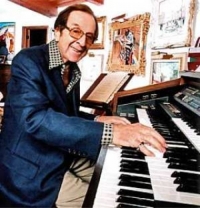
Victor Mizzy (January 9, 1916 – October 17, 2009) was an American composer for television and movies and musician whose best-known works are the themes to the 1960s television sitcoms Green Acres and The Addams Family. Mizzy also wrote top-20 songs from the 1930s to 1940s. As a child, he played accordion and piano, and was largely self-taught as a composer. During World War II, he served in the United States Navy where he wrote some of his hit songs.
Supertramp

Supertramp were a British progressive rock band that released a series of top-selling albums in the 1970s and early 1980s.
Their early music included ambitious concept albums, from which were drawn a number of hits including "Goodbye Stranger", "Bloody Well Right", "The Logical Song", "Breakfast in America", "Dreamer", "Give a Little Bit", "It's Raining Again", and "Take the Long Way Home". Supertramp attained superstardom in the United States, Canada, most of Europe, South Africa, Australia and Brazil, although they were not quite as popular in their home country, the UK. Nonetheless, the album Breakfast in America was a big hit there, reaching number three on the UK charts and featuring two top 10 singles.
Their early music included ambitious concept albums, from which were drawn a number of hits including "Goodbye Stranger", "Bloody Well Right", "The Logical Song", "Breakfast in America", "Dreamer", "Give a Little Bit", "It's Raining Again", and "Take the Long Way Home". Supertramp attained superstardom in the United States, Canada, most of Europe, South Africa, Australia and Brazil, although they were not quite as popular in their home country, the UK. Nonetheless, the album Breakfast in America was a big hit there, reaching number three on the UK charts and featuring two top 10 singles.
The Carpenters

The Carpenters were a vocal and instrumental duo, consisting of siblings Karen and Richard Carpenter. Though often referred to by the public as "The Carpenters", the duo's official name on authorized recordings and press materials is simply "Carpenters", without the definite article. During a period in the 1970s when louder and wilder rock was in great demand, Richard and Karen produced a distinctively soft musical style that made them one of the best-selling music artists of all time.
The Carpenters' melodic pop charted a record-breaking score of hit recordings on the American Top 40 and Adult Contemporary charts, becoming leading sellers in the soft rock, easy listening and adult contemporary genres. The Carpenters had three #1 singles on the Billboard Hot 100 and fifteen #1 hits on the Adult Contemporary Chart (see The Carpenters discography). In addition, they had twelve top 10 singles (including their #1 hits). To date, The Carpenters' album and single sales total more than 100 million units.
During their fourteen-year career, The Carpenters recorded eleven albums, five of which contained top 10 singles (Close to You, Carpenters, A Song for You, Now & Then and Horizon), thirty-one singles, five television specials, and one short-lived television series. They toured in the United States, the United Kingdom, Japan, Australia, the Netherlands and Belgium. Their recording career ended with Karen's death on February 4, 1983. Karen passed away due to a cardiac arrest due to complications of anorexia nervosa. Extensive news coverage of the circumstances surrounding her death increased public awareness of the consequences of eating disorders.
The Carpenters' melodic pop charted a record-breaking score of hit recordings on the American Top 40 and Adult Contemporary charts, becoming leading sellers in the soft rock, easy listening and adult contemporary genres. The Carpenters had three #1 singles on the Billboard Hot 100 and fifteen #1 hits on the Adult Contemporary Chart (see The Carpenters discography). In addition, they had twelve top 10 singles (including their #1 hits). To date, The Carpenters' album and single sales total more than 100 million units.
During their fourteen-year career, The Carpenters recorded eleven albums, five of which contained top 10 singles (Close to You, Carpenters, A Song for You, Now & Then and Horizon), thirty-one singles, five television specials, and one short-lived television series. They toured in the United States, the United Kingdom, Japan, Australia, the Netherlands and Belgium. Their recording career ended with Karen's death on February 4, 1983. Karen passed away due to a cardiac arrest due to complications of anorexia nervosa. Extensive news coverage of the circumstances surrounding her death increased public awareness of the consequences of eating disorders.
Edith Piaf

Édith Piaf (19 December 1915—10 October 1963) was a French singer and cultural icon who "is almost universally regarded as France's greatest popular singer." Her singing reflected her life, with her specialty being the ballads. Among her famous songs are "La vie en rose" (1946), "Hymne à l'amour" (1949), "Milord" (1959), "Non, je ne regrette rien" (1960), and Padam Padam.
Edith Piaf's signature song "La vie en rose" was written in 1945 and was voted a Grammy Hall of Fame Award in 1998.
The legendary Paris Olympia concert hall is where Piaf achieved lasting fame, giving several series of concerts at the hall, the most famous venue in Paris, between January 1955 and October 1962. Excerpts from five of these concerts (1955, 1956, 1958, 1961, 1962) were issued on record and CD and have never been out of print. The 1961 concerts were promised by Piaf in an effort to save the venue from bankruptcy and where she debuted her song "Non, je ne regrette rien". In April 1963, Piaf recorded her last song, "L'homme de Berlin".
Edith Piaf's signature song "La vie en rose" was written in 1945 and was voted a Grammy Hall of Fame Award in 1998.
The legendary Paris Olympia concert hall is where Piaf achieved lasting fame, giving several series of concerts at the hall, the most famous venue in Paris, between January 1955 and October 1962. Excerpts from five of these concerts (1955, 1956, 1958, 1961, 1962) were issued on record and CD and have never been out of print. The 1961 concerts were promised by Piaf in an effort to save the venue from bankruptcy and where she debuted her song "Non, je ne regrette rien". In April 1963, Piaf recorded her last song, "L'homme de Berlin".
Carl Bohm

Carl Bohm (also known as Henry Cooper and Karl Bohm) (11 September 1844 – 4 April 1920) was a German pianist and composer.Bohm is regarded as one of the leading German songwriters of the 19th century, and wrote such works as Still as the Night, Twilight, May Bells, Enfant Cheri and The Fountain.The Oxford Companion to Music says that Bohm was "a German composer of great fecundity and the highest salability... He occupied an important position in the musical commonwealth inasmuch as his publisher, N. Simrock, declared that the profits on his compositions provided the capital for the publication of those of Brahms.
Luigi Boccherini

Ridolfo Luigi Boccherini (/ˌbɒkəˈriːni/, also US: /ˌboʊk-/, Italian: (About this soundlisten); 19 February 1743 – 28 May 1805) was an Italian, later Spanish, composer and cellist of the Classical era whose music retained a courtly and galante style even while he matured somewhat apart from the major European musical centers. He is best known for a minuet from his String Quintet in E, Op. 11, No. 5 (G 275), and the Cello Concerto in B flat major (G 482). The latter work was long known in the heavily altered version by German cellist and prolific arranger Friedrich Grützmacher, but has recently been restored to its original version.
joão bosco
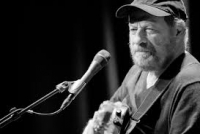
João Bosco de Freitas Mucci, known professionally as João Bosco (Portuguese pronunciation: ) is a Brazilian singer-songwriter and guitarist. In the 1970s he established his reputation in música popular Brasileira (Portuguese: "Brazilian pop music") with lyricist Aldir Blanc.Born on July 13, 1946, in Ponte Nova, Minas Gerais, Bosco's profession was engineering when he moved to Rio de Janeiro, where his songs were recorded by Elis Regina. In the introduction to his three-volume Songbook, Almir Chediak wrote, "Brilliant composer João Bosco's melodic and harmonic constructions are among the most auspicious in Brazilian music." Chapter Five of Masters of Contemporary Brazilian Song: MPB 1965-1985 by Charles A. Perrone is dedicated to the work of Bosco and Blanc.
SONNY CLARK
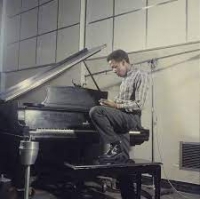
Conrad Yeatis "Sonny" Clark (July 21, 1931 – January 13, 1963) was an American jazz pianist and composer who mainly worked in the hard bop idiom.While visiting an aunt in California at age 20, Clark decided to stay and began working with saxophonist Wardell Gray. Clark went to San Francisco with Oscar Pettiford and after a couple months, was working with clarinetist Buddy DeFranco in 1953. Clark toured the United States and Europe with DeFranco until January 1956, when he joined The Lighthouse All-Stars, led by bassist Howard Rumsey.
Philippe Bredif

Philippe Petit is a French high-wire artist who gained fame for his unauthorized high-wire walks between the towers of Notre Dame Cathedral in Paris in 1971 and of Sydney Harbour Bridge in 1973, as well as between the Twin Towers of the World Trade Center in New York City on the morning of 7 August 1974.
Tom Anderson
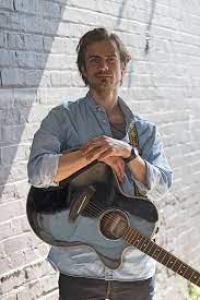
Thomas Anderson is an American singer-songwriter. Thomas Anderson. Born, Oklahoma. Origin, Austin, Texas. Genres, Rock music. Years active, 1989–present.
Music theory

Music theory is the study of the practices and possibilities of music. The Oxford Companion to Music describes three interrelated uses of the term "music theory"
Evanescence

Evanescence is an American rock band founded in Little Rock, Arkansas in 1995 by singer/pianist Amy Lee and guitarist Ben Moody.
After recording two private EPs and a demo CD named Origin, with the help of Bigwig Enterprises in 2000, the band released their first full-length album, Fallen, on Wind-up Records in 2003. Fallen sold more than 15 million copies worldwide and helped the band win two Grammy Awards. A year later, Evanescence released their first live album, Anywhere but Home, which sold more than one million copies worldwide. In 2006, the band released their second studio album, The Open Door, which has sold more than four million copies.
The band has suffered several line-up changes, including co-founder Moody leaving in 2003, followed by guitarist John LeCompt and drummer Rocky Gray in 2007. Lee is now the only original member of Evanescence remaining in the band.
After recording two private EPs and a demo CD named Origin, with the help of Bigwig Enterprises in 2000, the band released their first full-length album, Fallen, on Wind-up Records in 2003. Fallen sold more than 15 million copies worldwide and helped the band win two Grammy Awards. A year later, Evanescence released their first live album, Anywhere but Home, which sold more than one million copies worldwide. In 2006, the band released their second studio album, The Open Door, which has sold more than four million copies.
The band has suffered several line-up changes, including co-founder Moody leaving in 2003, followed by guitarist John LeCompt and drummer Rocky Gray in 2007. Lee is now the only original member of Evanescence remaining in the band.
Whitney Houston

Whitney Elizabeth Houston (born August 9, 1963) is an American singer, actress, and former fashion model. A relative of several prominent soul singers, including her mother Cissy Houston, cousins Dee Dee and Dionne Warwick and godmother Aretha Franklin, Houston began singing at her New Jersey church as a member of a junior gospel choir at age eleven. After she began performing alongside her mother at night clubs in the New York City area, she was discovered by Arista Records label head Clive Davis.
Houston released her debut album Whitney Houston in 1985, which became the best-selling debut album by a female artist at the time of release. Her second studio album Whitney (1987) became the first album by a female artist to debut at number one on the Billboard 200 albums chart. Houston's crossover appeal on the popular music charts as well as her prominence on MTV enabled several African-American women to follow in her success.
Following her marriage to singer Bobby Brown, Houston appeared in her first starring role in the feature film The Bodyguard in 1992. The film's original soundtrack won the 1994 Grammy Award for Album of the Year. Its lead single, Houston's remake of the 1974 Dolly Parton song "I Will Always Love You", became one of the best-selling singles in music history. Houston continued to star in feature films and contributed to soundtracks including Waiting to Exhale (1995) and The Preacher's Wife (1996). After the release of her fourth studio album My Love Is Your Love (1998), she renewed her recording contract with Arista Records in 2001 for a historic $100 million. She subsequently released her fifth studio album, Just Whitney the following year with One Wish: The Holiday Album being released in 2003. Amidst widespread media coverage of personal and professional turmoil, Houston's marriage to Brown ended in 2006.
Houston is one of the world's best-selling music artists, having sold over 190 million albums and singles worldwide. She is ranked as the fourth best-selling female artist in the United States by the Recording Industry Association of America, with 55 million certified albums. She has been listed by Rolling Stone magazine as one of The 100 Greatest Singers of All Time.
Houston released her debut album Whitney Houston in 1985, which became the best-selling debut album by a female artist at the time of release. Her second studio album Whitney (1987) became the first album by a female artist to debut at number one on the Billboard 200 albums chart. Houston's crossover appeal on the popular music charts as well as her prominence on MTV enabled several African-American women to follow in her success.
Following her marriage to singer Bobby Brown, Houston appeared in her first starring role in the feature film The Bodyguard in 1992. The film's original soundtrack won the 1994 Grammy Award for Album of the Year. Its lead single, Houston's remake of the 1974 Dolly Parton song "I Will Always Love You", became one of the best-selling singles in music history. Houston continued to star in feature films and contributed to soundtracks including Waiting to Exhale (1995) and The Preacher's Wife (1996). After the release of her fourth studio album My Love Is Your Love (1998), she renewed her recording contract with Arista Records in 2001 for a historic $100 million. She subsequently released her fifth studio album, Just Whitney the following year with One Wish: The Holiday Album being released in 2003. Amidst widespread media coverage of personal and professional turmoil, Houston's marriage to Brown ended in 2006.
Houston is one of the world's best-selling music artists, having sold over 190 million albums and singles worldwide. She is ranked as the fourth best-selling female artist in the United States by the Recording Industry Association of America, with 55 million certified albums. She has been listed by Rolling Stone magazine as one of The 100 Greatest Singers of All Time.
Oasis

Oasis are an English rock band that formed in Manchester in 1991. The group was formed by Liam Gallagher (vocals), Paul Arthurs (guitar), Paul McGuigan (bass) and Tony McCarroll (drums), who were soon joined by Liam's older brother Noel Gallagher (lead guitar, lead vocals). Oasis have sold more than 50 million records worldwide, have had eight UK number-one singles and have collected 15 NME Awards, 5 Brit Awards and 9 Q awards. The Gallagher brothers are the band's leading songwriters and the only continual members. The present lineup is completed by guitarists Gem Archer and Andy Bell, as well as unofficial drummer Chris Sharrock.
The band initially gained prominence performing on the Manchester club circuit. They were signed to independent record label Creation Records and afterwards released their debut album Definitely Maybe in 1994. The following year, the band recorded (What's the Story) Morning Glory? (1995) with their new drummer Alan White, whilst rivaling with Britpop peers Blur in the charts. The Gallagher brothers were featured regularly in tabloid newspapers for their sibling rivalry and wild lifestyles, cultivating reputations both as bad boys and as a band of the people. At the height of their fame, Oasis released their third album, Be Here Now (1997). It became the fastest-selling album in UK chart history, but lost much of its long-term appeal after the initial hype and positive reception tempered. The band suffered a notable decline in popularity in America and lost three long-time members between recording and releasing Standing on the Shoulder of Giants (2000) and Heathen Chemistry (2002).
Their sixth album Don't Believe the Truth (2005), despite turbulent recording, became their best-selling and best-received album in a decade. The following year, the band released a compilation album entitled Stop the Clocks. In February 2007, Oasis received the BRIT Award for outstanding contribution to music. Dig Out Your Soul, the seventh studio album by the band, is set to be released on October 6, 2008, with the lead single from that album, "The Shock of the Lightning", set to be released on 29 September 2008.
The band initially gained prominence performing on the Manchester club circuit. They were signed to independent record label Creation Records and afterwards released their debut album Definitely Maybe in 1994. The following year, the band recorded (What's the Story) Morning Glory? (1995) with their new drummer Alan White, whilst rivaling with Britpop peers Blur in the charts. The Gallagher brothers were featured regularly in tabloid newspapers for their sibling rivalry and wild lifestyles, cultivating reputations both as bad boys and as a band of the people. At the height of their fame, Oasis released their third album, Be Here Now (1997). It became the fastest-selling album in UK chart history, but lost much of its long-term appeal after the initial hype and positive reception tempered. The band suffered a notable decline in popularity in America and lost three long-time members between recording and releasing Standing on the Shoulder of Giants (2000) and Heathen Chemistry (2002).
Their sixth album Don't Believe the Truth (2005), despite turbulent recording, became their best-selling and best-received album in a decade. The following year, the band released a compilation album entitled Stop the Clocks. In February 2007, Oasis received the BRIT Award for outstanding contribution to music. Dig Out Your Soul, the seventh studio album by the band, is set to be released on October 6, 2008, with the lead single from that album, "The Shock of the Lightning", set to be released on 29 September 2008.
David Mallamud
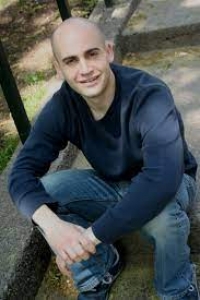
David Mallamud is a MacDowell Fellow, a Dramatist Guild Fellow, A Leonard Bernstein Fellow (Tanglewood), A Fred Ebb, Jonathan Larson Award, and Richard Rodgers Award finalist, a recipient of a Broadway World Album Award, two ASCAP Morton Gould Awards, and a Charles Ives Scholarship from The American Academy of Arts and Letters. He has composed for venues ranging from Carnegie Hall to Off-Broadway, where his music for the recent production of Flight School: The Musical was lauded by Laurel Graeber of the New York Times as the show’s “biggest boon . . . worthy of bigger stages, variously embracing classical lyricism, pulsing pop, the poignant ballad and at least one all-out, Alice Cooper–style rock rant.”
La Rue Kétanou

La Rue Ketanou is a French music group that blends chanson and folk rock mixed with elements of reggae music, bohemian style of life, theatre, poetry and humor. Its name is a deformation of La rue qui est à nous, which means The street that's ours.The group is composed of musicians Mourad Musset, Olivier Leite, and Florent Vintrigner, all from the Théâtre du fil in Paris. At first the trio played in the streets of la Rochelle and the île de Ré. The show was a mix of theater and music. The group's motto was "C'est pas nous qui sommes à la rue, c'est la rue qui est à nous ('Ketanou')", meaning literally: "We don't belong to the street; it's the street that belongs to us." This could also be rendered as: "We are not bums; the street is ours."
Stevie Nicks
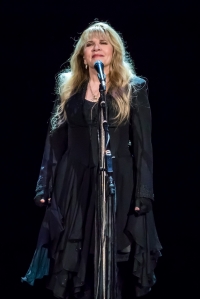
Stephanie Lynn "Stevie" Nicks (born May 26, 1948) is an American singer and songwriter known for her work with the band Fleetwood Mac and as a solo artist. She is known for her distinctive voice, mystical stage persona and poetic, symbolic lyrics.Nicks joined Fleetwood Mac in 1975 along with her then-boyfriend Lindsey Buckingham. In 1981, while remaining a member of Fleetwood Mac, Nicks began her solo career, releasing the studio album Bella Donna, which topped the Billboard 200 and has reached multiplatinum status. She has released eight solo studio albums.
The Beatles

The Beatles were a pop and rock group from Liverpool, England formed in 1960. Primarily consisting of John Lennon (rhythm guitar, vocals), Paul McCartney (bass guitar, vocals), George Harrison (lead guitar, vocals) and Ringo Starr (drums, vocals) throughout their career, The Beatles are recognised for leading the mid-1960s musical "British Invasion" into the United States. Although their initial musical style was rooted in 1950s rock and roll and homegrown skiffle, the group explored genres ranging from Tin Pan Alley to psychedelic rock. Their clothes, styles, and statements made them trend-setters, while their growing social awareness saw their influence extend into the social and cultural revolutions of the 1960s. After the band broke up in 1970, all four members embarked upon solo careers.
The Beatles are one of the most commercially successful and critically acclaimed bands in the history of popular music, selling over a billion records internationally. In the United Kingdom, The Beatles released more than 40 different singles, albums, and EPs that reached number one, earning more number one albums (15) than any other group in UK chart history. This commercial success was repeated in many other countries; their record company, EMI, estimated that by 1985 they had sold over one billion records worldwide. According to the Recording Industry Association of America, The Beatles have sold more albums in the United States than any other band. In 2004, Rolling Stone magazine ranked The Beatles number one on its list of 100 Greatest Artists of All Time. According to that same magazine, The Beatles' innovative music and cultural impact helped define the 1960s, and their influence on pop culture is still evident today. In 2008, Billboard magazine released a list of top-selling Hot 100 artists to celebrate the chart's fiftieth anniversary; The Beatles reached #1 again.
The Beatles are one of the most commercially successful and critically acclaimed bands in the history of popular music, selling over a billion records internationally. In the United Kingdom, The Beatles released more than 40 different singles, albums, and EPs that reached number one, earning more number one albums (15) than any other group in UK chart history. This commercial success was repeated in many other countries; their record company, EMI, estimated that by 1985 they had sold over one billion records worldwide. According to the Recording Industry Association of America, The Beatles have sold more albums in the United States than any other band. In 2004, Rolling Stone magazine ranked The Beatles number one on its list of 100 Greatest Artists of All Time. According to that same magazine, The Beatles' innovative music and cultural impact helped define the 1960s, and their influence on pop culture is still evident today. In 2008, Billboard magazine released a list of top-selling Hot 100 artists to celebrate the chart's fiftieth anniversary; The Beatles reached #1 again.
Park Jong Hoon
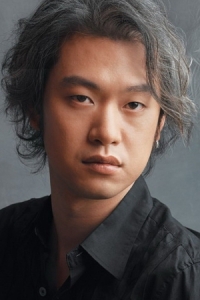
Music video appearances — Park Joong-hoon (born March 22, 1966) is a South Korean actor. Contents.
Julio de Caro
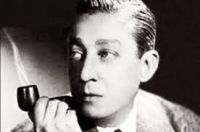
Julio de Caro (December 11, 1899 – March 11, 1980) was an Argentine composer, musician and conductor prominent in the Tango genre.His father opened a conservatory in the San Telmo district, in 1913, soon becoming one of the city's best known sources for music, instruments, parts, and lessons. He and his brother, Francisco, were both taught the piano and violin, respectively; though their father ultimately granted them their wish to exchange instruments (a third brother, Emilio, learned the violin). Against his father's wishes, Julio obtained a spot as a second violinist at the Lorea Theatre for a 1915 performance of a zarzuela. Despite his father's punishment and objections, the brothers began attending Buenos Aires' popular tango recitals. Some of these early influences included bandleaders Eduardo Arolas, Juan Carlos Cobián, and Roberto Firpo.
Leona Lewis

Leona Louise Lewis (born 3 April 1985) is an English pop and R&B singer-songwriter, and the winner of the third series of UK television talent show The X Factor. Her UK debut single, "A Moment Like This", broke a world record after it was downloaded over 50,000 times within 30 minutes.
Her second single, "Bleeding Love", was the biggest-selling single of 2007 in the UK, topped over thirty national singles charts and became a number one single on the first week in France and number one in the United States.
Her debut album, Spirit, was released in Europe in November 2007, and became the fastest-selling debut album ever in both the United Kingdom and Ireland. Released in North America in April 2008, Spirit debuted at number one on the US Billboard 200 chart and made Lewis the first British solo artist to top the chart with a debut album.
With her album reaching number one in at least three continents and nine countries, Lewis has had one of the most successful launches of any television talent show contestant ever.
Her second single, "Bleeding Love", was the biggest-selling single of 2007 in the UK, topped over thirty national singles charts and became a number one single on the first week in France and number one in the United States.
Her debut album, Spirit, was released in Europe in November 2007, and became the fastest-selling debut album ever in both the United Kingdom and Ireland. Released in North America in April 2008, Spirit debuted at number one on the US Billboard 200 chart and made Lewis the first British solo artist to top the chart with a debut album.
With her album reaching number one in at least three continents and nine countries, Lewis has had one of the most successful launches of any television talent show contestant ever.
Frederic Mesnier

Frédéric Mesnier is a french guitarist and composer, born in 1961. ... Self-taught, he discovers the instrument at 14, working with the tablatures of Marcel Dadi, the beloved French picker. Later he turns to the classical repertoire.
W.A. Mozart

Wolfgang Amadeus Mozart (German: , full baptismal name Johannes Chrysostomus Wolfgangus Theophilus Mozart (27 January 1756 – 5 December 1791), was a prolific and influential composer of the Classical era. He composed over 600 works, many acknowledged as pinnacles of symphonic, concertante, chamber, piano, operatic, and choral music. He is among the most enduringly popular of classical composers.
Mozart showed prodigious ability from his earliest childhood in Salzburg. Already competent on keyboard and violin, he composed from the age of five and performed before European royalty; at 17 he was engaged as a court musician in Salzburg, but grew restless and traveled in search of a better position, always composing abundantly. While visiting Vienna in 1781, he was dismissed from his Salzburg position. He chose to stay in the capital, where he achieved fame but little financial security. During his final years in Vienna, he composed many of his best-known symphonies, concertos, and operas, and the Requiem. The circumstances of his early death have been much mythologized. He was survived by his wife Constanze and two sons.
Mozart learned voraciously from others, and developed a brilliance and maturity of style that encompassed the light and graceful along with the dark and passionate—the whole informed by a vision of humanity "redeemed through art, forgiven, and reconciled with nature and the absolute." His influence on subsequent Western art music is profound. Beethoven wrote his own early compositions in the shadow of Mozart, of whom Joseph Haydn wrote that "posterity will not see such a talent again in 100 years."
Mozart showed prodigious ability from his earliest childhood in Salzburg. Already competent on keyboard and violin, he composed from the age of five and performed before European royalty; at 17 he was engaged as a court musician in Salzburg, but grew restless and traveled in search of a better position, always composing abundantly. While visiting Vienna in 1781, he was dismissed from his Salzburg position. He chose to stay in the capital, where he achieved fame but little financial security. During his final years in Vienna, he composed many of his best-known symphonies, concertos, and operas, and the Requiem. The circumstances of his early death have been much mythologized. He was survived by his wife Constanze and two sons.
Mozart learned voraciously from others, and developed a brilliance and maturity of style that encompassed the light and graceful along with the dark and passionate—the whole informed by a vision of humanity "redeemed through art, forgiven, and reconciled with nature and the absolute." His influence on subsequent Western art music is profound. Beethoven wrote his own early compositions in the shadow of Mozart, of whom Joseph Haydn wrote that "posterity will not see such a talent again in 100 years."
Carlos Gardel

Carlos Gardel (11 December 1890 – 24 June 1935) was a singer, songwriter and actor, and is perhaps the most prominent figure in the history of tango. The unerring musicality of Gardel's baritone voice and the dramatic phrasing of his lyrics made miniature masterpieces of his hundreds of three-minute tango recordings. Together with lyricist and long-time collaborator Alfredo Le Pera, Gardel wrote several classic tangos, most notably "Mi Buenos Aires querido", "Por una cabeza" and "El día que me quieras".
Gardel died in an airplane crash at the height of his career, becoming an archetypal tragic hero mourned throughout Latin America. For many, Gardel embodies the soul of the tango style. He is commonly referred to as "Carlitos", "El Zorzal" (The Song Thrush), "The King of Tango", "El Mago" (The Magician) and "El Mudo" (The Mute).
Gardel died in an airplane crash at the height of his career, becoming an archetypal tragic hero mourned throughout Latin America. For many, Gardel embodies the soul of the tango style. He is commonly referred to as "Carlitos", "El Zorzal" (The Song Thrush), "The King of Tango", "El Mago" (The Magician) and "El Mudo" (The Mute).
Baden Powell

Baden Powell de Aquino (Brazilian Portuguese: ; 6 August 1937 – 26 September 2000), known professionally as Baden Powell, was a Brazilian guitarist. He combined classical techniques with popular harmony and swing. He performed in many styles, including bossa nova, samba, Brazilian jazz, Latin jazz and MPB. He performed on stage during most of his lifetime.
Creedence Clearwater Revival

Creedence Clearwater Revival, also referred to as Creedence and CCR, was an American rock band that recorded and performed from 1959 to 1972 under various names before settling on the Creedence Clearwater Revival name in 1967. The band initially consisted of lead vocalist, lead guitarist, and primary songwriter John Fogerty; his brother, rhythm guitarist Tom Fogerty; bassist Stu Cook; and drummer Doug Clifford. These members had played together since 1959, first as the Blue Velvets and later as the Golliwogs.
Al Hoffman
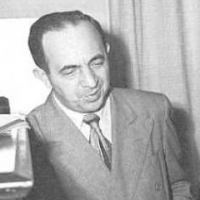
Al Hoffman was an American song composer. He was a hit songwriter active in the 1930s, 1940s and 1950s, usually co-writing with others and responsible for number-one hits through each decade, many of which are still sung and recorded today. He was posthumously made a member of the Songwriters Hall of Fame in 1984.
Bruno Mars

Peter Gene Hernandez (born October 8, 1985), better known by his stage name Bruno Mars, is an American singer-songwriter and music producer. Raised in Honolulu, Hawaii by a family of musicians, Mars began making music at a young age. After performing in various musical venues in his hometown throughout his childhood, he decided to pursue a musical career. Mars began producing songs for other artists, joining production team The Smeezingtons.
He became recognized as a solo artist after lending his vocals and co-writing the hooks for the songs "Nothin' on You" by B.o.B, and "Billionaire" by Travie McCoy. He also co-wrote the hits "Right Round" by Flo Rida featuring Kesha, "Wavin' Flag" by K'naan, and "Fuck You!" by Cee Lo Green. In October 2010, he released his debut album, Doo-Wops & Hooligans. Anchored by the singles "Just the Way You Are" and "Grenade", the album peaked at number three on the Billboard 200. He has been nominated for seven Grammys at the 53rd Grammy Awards, which will be held on February 13, 2011.
He became recognized as a solo artist after lending his vocals and co-writing the hooks for the songs "Nothin' on You" by B.o.B, and "Billionaire" by Travie McCoy. He also co-wrote the hits "Right Round" by Flo Rida featuring Kesha, "Wavin' Flag" by K'naan, and "Fuck You!" by Cee Lo Green. In October 2010, he released his debut album, Doo-Wops & Hooligans. Anchored by the singles "Just the Way You Are" and "Grenade", the album peaked at number three on the Billboard 200. He has been nominated for seven Grammys at the 53rd Grammy Awards, which will be held on February 13, 2011.
MacGyver
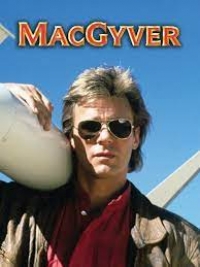
MacGyver, a contemporary hero and role model, applies his scientific knowledge to ordinary items to create a means of escape for himself and others from impending doom.
 Sheet Music Port is a site for those who wants to access popular sheet music easily,
letting them download the sheet music for free for trial purposes.
It's completely free to download and try the listed sheet music, but you have to delete the files after 24 hours of trial.
Don't forget, if you like the piece of music you have just learned playing,
treat the artist with respect, and go buy the original sheet music.
Sheet Music Port is a site for those who wants to access popular sheet music easily,
letting them download the sheet music for free for trial purposes.
It's completely free to download and try the listed sheet music, but you have to delete the files after 24 hours of trial.
Don't forget, if you like the piece of music you have just learned playing,
treat the artist with respect, and go buy the original sheet music.
